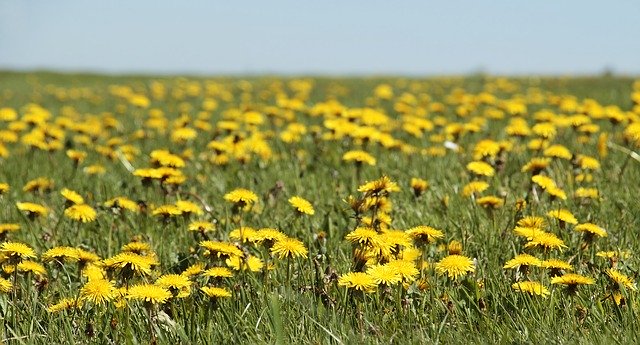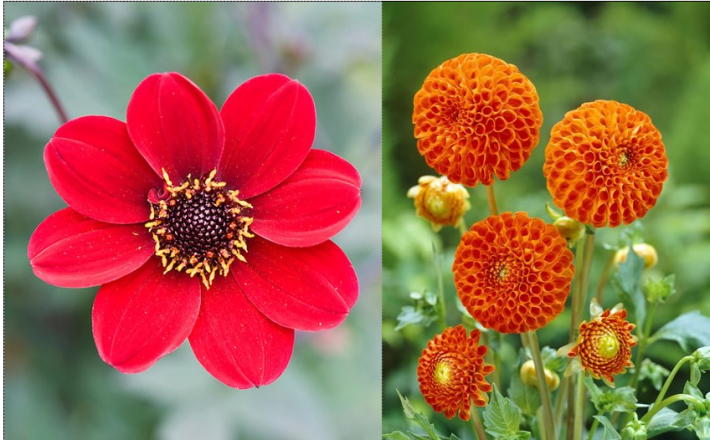Why the British Ecological Society President mows round the dandelions in her lawn
While we can’t all protect tigers and elephants, every single one of us can support the natural world through acts as small as simply letting the grass grow, says Jane Memmott, the new President of the British Ecological Society.

At the start of her presidency of the British Ecological Society, Jane Memmott of the University of Bristol has been talking about importance of ecology to everyone’s lives. She makes it clear how every single one of us can make a difference and how nature will return this favour many times over.
Ecology is important
“Think about what you all had for breakfast,” begins Jane, explaining that apples, marmalade on toast, pumpkin seeds in your muesli and even your morning coffee all involved interactions with pollinators before they got to your table. And it’s not just pollinators providing vital services free of charge: Jane adds that there is an army of critters removing crop pests, and without dung beetles we’d literally be in a terrible mess.
In short, ecology affects everyone.
After breakfast and you’ve left your house, the trees you walk past provide services like shade, pollution control and water regulation, not to mention the pleasing beauty of them. Jane once bought a house with the wrong number of rooms because it had such a nice tree.
On a larger scale, Jane says that managing our land well can ensure clean water and reduce flood risks. On top of this, whole sections of our tourism industry are based around providing people with opportunities to experience the UK’s green and pleasant land. In short, ecology impacts everyone.
Every single one of us can do something
Having a garden, an allotment, a balcony or even just a pot plant on your doorstep is an opportunity to support nature by providing food for bees, hoverflies and butterflies. Jane has a few simple rules to consider. When choosing flowers, go for single flowers over double flowers. There’s nothing for pollinators to eat in plants bred to look like pom poms.

Pollinators need food in February through to November so try have something flowering throughout the year, or make sure you neighbours do when you don’t; working as a street can achieve more than one garden. It’s the start and end of the season when pollinators most struggle to find nectar.
Learn to love weeds, says Jane. Dandelions are fantastic for early season pollinators. The UK has about 270 species of solitary bee and they love dandelions. Jane says that if dandelions were rare, people would be fighting over them. By leaving lawns to grow to ankle height, daisies, dandelions and clovers all get a chance to flower.
Nature returns the favour
Jane is particularly passionate about the ways in which ecology returns the favour when we support it. There’s been a host of recent evidence on the benefits of nature to our wellbeing including a report by the Wildlife Trusts.
A 2016 study found allotment owners had “significantly better self-esteem, total mood disturbance and general health, experiencing less depression and fatigue and more vigour”. Another study found that a walk in a green space could boost people’s moods for up to seven hours.
These mood boosts certainly seem to be felt by Bristol residents walking past wildflower meadows that Jane persuaded the University to plant. “Whoever thought of this … thank you! It is inspired. These flowers provide a real moment of joy on my walks between meetings. It’s great to have splashes of colour among the buildings and so good for wildlife!” wrote one enthused resident.
Jane believes that helping nature in our cities will lead to a greater chance of ‘magic moments’ occurring, natural events that lift our mood. Crossing a bridge on her commute one morning, she spotted a pair of peregrines sharing a pigeon for breakfast. So excited, she grabbed a stranger to share the magical experience. “I was happy for a week after that,” beams Jane.
The BES is a champion for the science of ecology
Jane is keen to express the the main goals of the BES: advance and promote ecological science and its applications, raise the profile of ecology to make a difference and foster a strong and diverse ecological community.
The BES is a champion for the science of ecology. We get the data that informs evidence-based decisions. “Evidence led policy is so important,” says Jane, “For example, there’s a push to plant more trees, but we really need the right trees in the right places. By knowing about the ecology of trees we can do so much more.”
Our 6,000 members consist of ecologists all over the world. They’re on the cutting edge of science, dealing with research on a diverse range of issues, habitats, species and topics. The BES looks after the ecological community and helps find the best evidence.
You can hear Jane speaking about these topics on Radio 4’s PM. Or read more in the Guardian, Telegraph and Mail Online.
Like what we stand for?
Support our mission and help develop the next generation of ecologists by donating to the British Ecological Society.